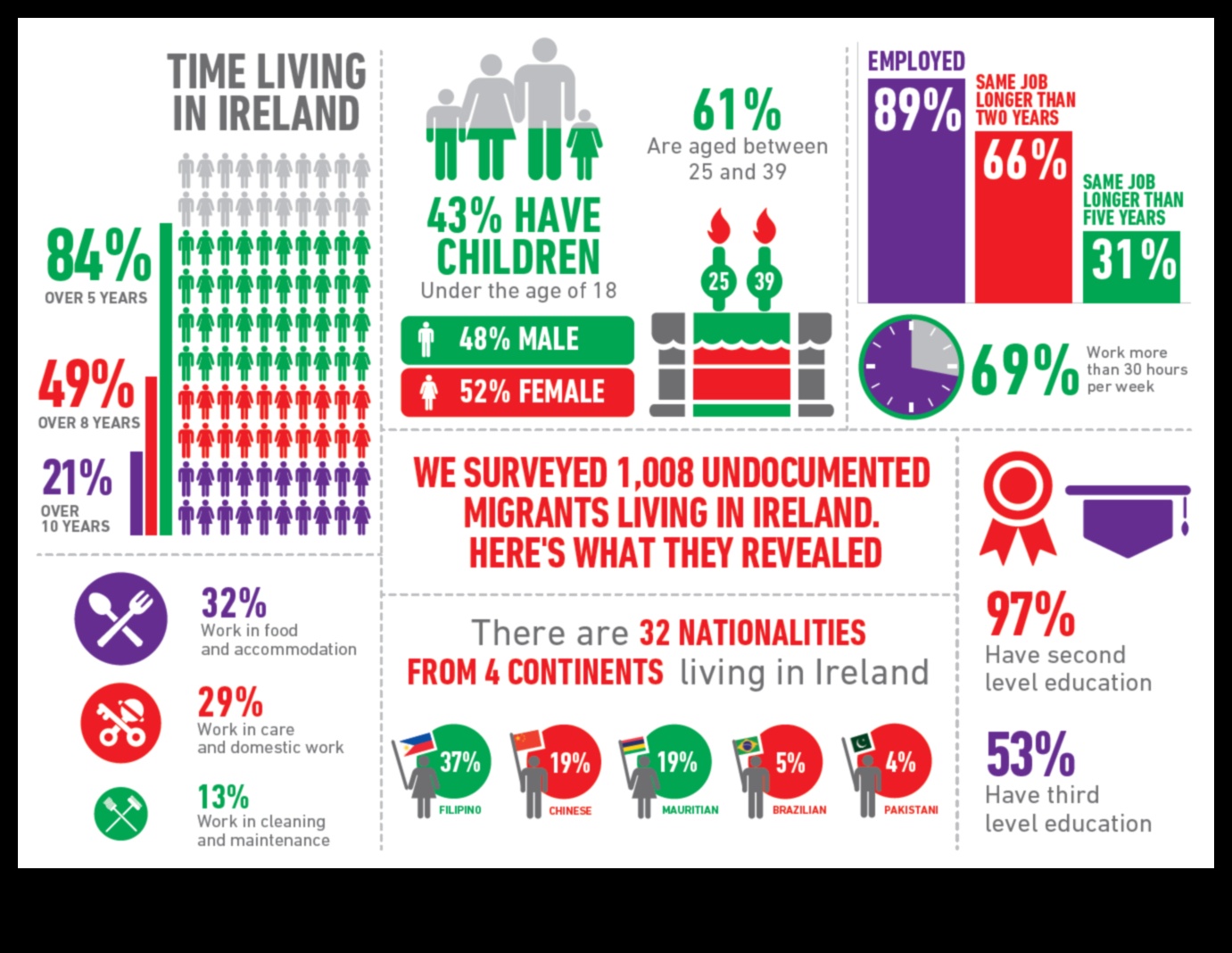
How to Immigrate to Ireland
-
Introduction
-
Benefits of immigrating to Ireland
-
Requirements for immigrating to Ireland
-
How to apply for a visa to Ireland
-
The Irish immigration process
-
Cost of living in Ireland
-
Working in Ireland
-
Education in Ireland
-
Healthcare in Ireland
-
FAQ
| Topic | Features |
|---|---|
| Ireland Immigration | – Requirements for immigration |
| Ireland Visa | – Types of visas available |
| Ireland Citizenship | – How to apply for citizenship |
| Ireland Green Card | – How to apply for a green card |
| Ireland Work Permit | – How to apply for a work permit |

II. Benefits of immigrating to Ireland
There are many benefits to immigrating to Ireland, including:
- A strong economy with a high standard of living
- A welcoming and diverse society
- A beautiful country with a rich culture
- A good education system
- Affordable healthcare
For more information on the benefits of immigrating to Ireland, please visit the following websites:
III. Requirements for immigrating to Ireland
The requirements for immigrating to Ireland vary depending on your nationality and the type of visa you are applying for. However, some general requirements include:
- A valid passport
- Proof of financial means
- A job offer from an Irish employer
- Adequate housing
- A clean criminal record
For more information on the specific requirements for your visa, please visit the Irish Immigration website.
IV. How to apply for a visa to Ireland
There are a number of different types of visas available for people who want to immigrate to Ireland. The type of visa you need will depend on your purpose for visiting Ireland. For example, if you are planning to work in Ireland, you will need a work visa. If you are planning to study in Ireland, you will need a student visa.
The application process for a visa to Ireland can be complex. It is important to make sure that you have all of the necessary documents in order before you start your application. You can find more information about the visa application process on the Irish immigration website.
Once you have submitted your application, you will need to wait for a decision from the Irish immigration authorities. The processing time for visas can vary, but it typically takes between 6 and 8 weeks.
If your visa application is approved, you will be issued a visa sticker that you will need to attach to your passport. You will also be given a letter of approval that you will need to show to immigration officials when you arrive in Ireland.
If you are planning to immigrate to Ireland, it is important to start the visa application process as early as possible. This will give you plenty of time to gather all of the necessary documents and to make sure that your application is processed correctly.

V. The Irish immigration process
The Irish immigration process is relatively straightforward, and can be completed in a few steps.
- First, you will need to determine which type of visa you need. There are a number of different types of visas available, each with its own requirements.
- Once you have determined which visa you need, you will need to gather the required documents. The specific documents you need will vary depending on the type of visa you are applying for.
- You will then need to submit your application to the Irish Embassy or Consulate in your home country.
- If your application is approved, you will be issued a visa.
- Once you have your visa, you can travel to Ireland and begin your new life.
The Irish immigration process can take a few months to complete, so it is important to start your application early.
For more information on the Irish immigration process, please visit the website of the Irish Embassy or Consulate in your home country.

VI. Cost of living in Ireland
The cost of living in Ireland varies depending on the city or region you choose to live in. In general, the cost of living in Dublin is higher than in other parts of the country. However, there are still many affordable options available for those who are looking to live in Ireland.
The following is a breakdown of the average cost of living in Ireland in 2023:
- Rent: €1,500 per month for a one-bedroom apartment in Dublin
- Utilities: €200 per month for electricity, gas, and water
- Food: €300 per month for groceries
- Transportation: €100 per month for public transportation
- Entertainment: €100 per month for going out to eat, movies, and other activities
Of course, these are just average costs. You may be able to find cheaper or more expensive options depending on your individual needs and budget.
If you are considering immigrating to Ireland, it is important to factor in the cost of living into your decision. By doing so, you can make sure that you are able to afford to live comfortably in Ireland.
Working in Ireland
Working in Ireland can be a great way to experience the country and earn some money. There are a number of different types of jobs available in Ireland, and the salaries are generally competitive. However, it is important to be aware of the different visa requirements for working in Ireland.
There are a number of different visa options available for working in Ireland. The most common visa for work is the General Employment Permit (GEP). This visa allows you to work in Ireland for up to two years, and it can be renewed for up to five years. To qualify for a GEP, you must have a job offer from an Irish employer, and you must meet certain salary requirements.
Other visa options for working in Ireland include the Critical Skills Permit (CSP), the Intra-Company Transfer (ICT) visa, and the Self-Employed Person (SEP) visa. The CSP is a temporary visa that allows you to work in Ireland for up to five years. The ICT visa is a temporary visa that allows you to transfer to an Irish branch of your company. The SEP visa is a permanent visa that allows you to work in Ireland as a self-employed person.
The cost of living in Ireland can vary depending on where you live. However, in general, it is more expensive to live in Ireland than it is in other European countries. The average monthly rent for a one-bedroom apartment in Dublin is around €1,500. The average monthly salary in Ireland is around €3,500.
If you are considering working in Ireland, it is important to do your research and make sure that you are eligible for the correct visa. You should also make sure that you have a job offer before you apply for a visa.

Education in Ireland
Ireland has a strong education system that is ranked among the best in the world. The country has a wide range of educational institutions, from primary schools to universities, and there are many opportunities for students to study at all levels.
The Irish education system is based on the British system, and students typically follow a similar curriculum to those in the UK. However, there are some differences in the way that education is delivered in Ireland, and students may also have the opportunity to study some Irish history and culture.
The primary school system in Ireland is free for all children, and students typically start school at the age of four. Primary school lasts for six years, and students then progress to secondary school. Secondary school lasts for five years, and students can choose to study a range of subjects at this level.
After secondary school, students can go on to study at a university or college. There are a number of universities in Ireland, including the University of Dublin (Trinity College), University College Dublin, and the National University of Ireland Galway. There are also a number of colleges of education, where students can train to become teachers.
The cost of education in Ireland varies depending on the type of institution and the level of study. However, it is generally more affordable than in many other countries.
Ireland is a great place to study, and there are many opportunities for students to develop their skills and knowledge. The country has a strong education system, and students can choose from a wide range of institutions and courses.
The healthcare system in Ireland is publicly funded and is based on the principles of universal access and equity. This means that all residents of Ireland are entitled to free or subsidized healthcare, regardless of their income or employment status.
The Irish healthcare system is divided into two main parts: the public health system and the private health system. The public health system is funded by the government and is available to all residents of Ireland. The private health system is funded by private insurers and is available to those who choose to purchase private health insurance.
The public health system in Ireland is made up of a network of hospitals, clinics, and primary care centers. Hospitals are divided into two types: public hospitals and private hospitals. Public hospitals are funded by the government and are available to all residents of Ireland free of charge. Private hospitals are funded by private insurers and are available to those who choose to purchase private health insurance.
Clinics are also divided into two types: public clinics and private clinics. Public clinics are funded by the government and are available to all residents of Ireland free of charge. Private clinics are funded by private insurers and are available to those who choose to purchase private health insurance.
Primary care centers are the first point of contact for most people who need healthcare in Ireland. Primary care centers are staffed by general practitioners (GPs) who provide a range of services, including preventive care, diagnosis and treatment of illnesses, and referrals to specialists.
The private health system in Ireland is made up of a network of private hospitals, clinics, and doctors. Private hospitals are funded by private insurers and are available to those who choose to purchase private health insurance. Private clinics are funded by private insurers and are available to those who choose to purchase private health insurance. Private doctors are self-employed and are not affiliated with any particular hospital or clinic.
The cost of healthcare in Ireland varies depending on the type of care you need and whether you are using the public or private health system. The public health system is free for all residents of Ireland, but there may be some charges for certain services, such as prescription drugs. The private health system is more expensive than the public health system, but you can choose your own doctor and hospital.
The healthcare system in Ireland is generally considered to be one of the best in the world. It is ranked 10th in the world by the World Health Organization (WHO). The Irish healthcare system is known for its high quality of care, its affordability, and its accessibility.
X. FAQ
1. What is the process of immigrating to Ireland?
2. What are the requirements for immigrating to Ireland?
3. What are the different types of visas available for immigrating to Ireland?